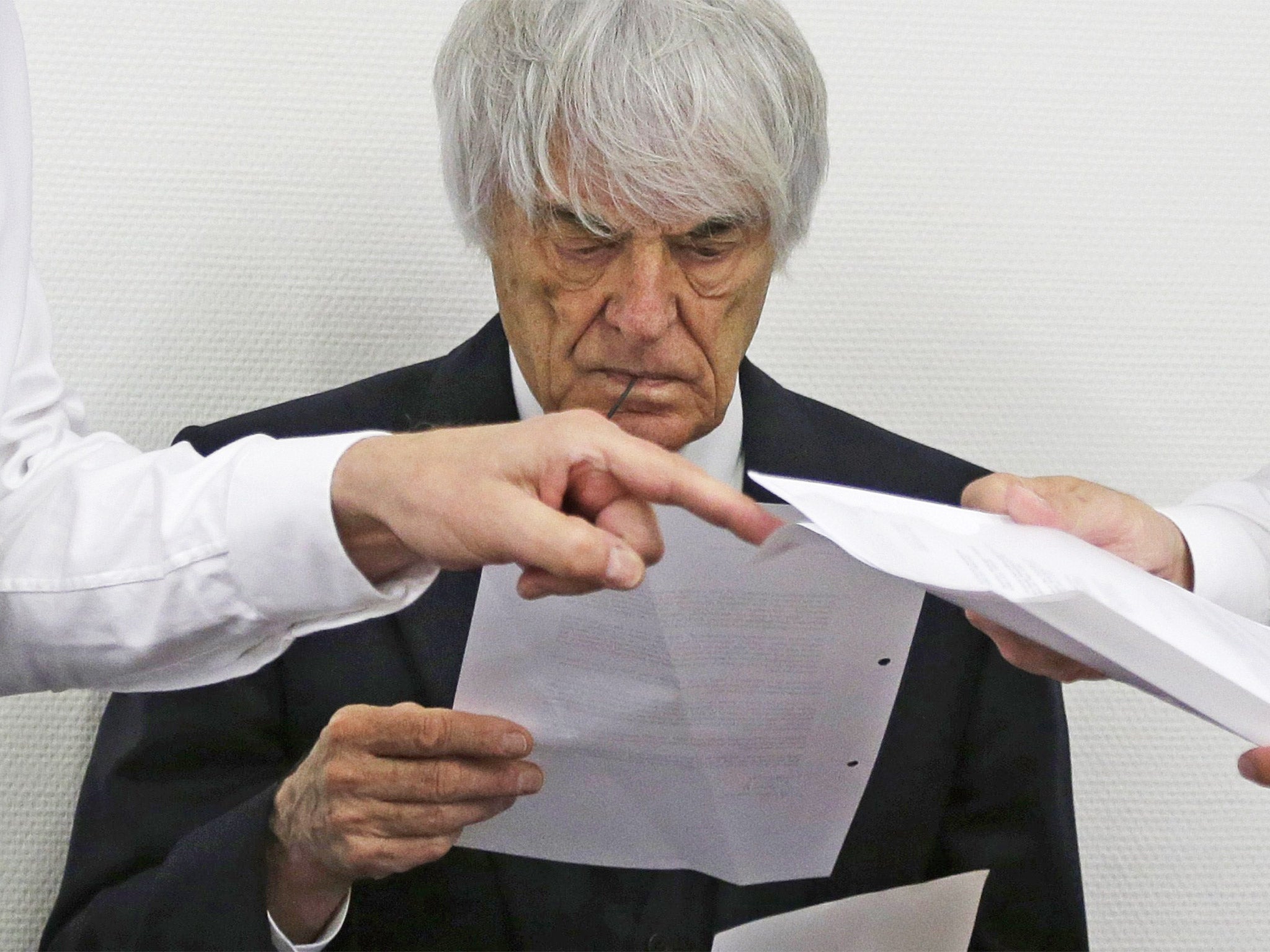Bernie Ecclestone attempts to halt £26m German bribery trial
If found guilty of the corruption charge, Ecclestone, who denies the allegation, faces up to 10 years imprisonment

Your support helps us to tell the story
From reproductive rights to climate change to Big Tech, The Independent is on the ground when the story is developing. Whether it's investigating the financials of Elon Musk's pro-Trump PAC or producing our latest documentary, 'The A Word', which shines a light on the American women fighting for reproductive rights, we know how important it is to parse out the facts from the messaging.
At such a critical moment in US history, we need reporters on the ground. Your donation allows us to keep sending journalists to speak to both sides of the story.
The Independent is trusted by Americans across the entire political spectrum. And unlike many other quality news outlets, we choose not to lock Americans out of our reporting and analysis with paywalls. We believe quality journalism should be available to everyone, paid for by those who can afford it.
Your support makes all the difference.Formula 1 billionaire Bernie Ecclestone has offered to pay a German bank £20m to halt a criminal trial in which he is accused of bribery, his lawyers said.
Prosecutors in Munich, where the 83-year-old motorsport magnate went on trial in April over claims he paid a £26m bung to secure a business deal, are still mulling whether to accept the proposal.
If found guilty of the corruption charge, Mr Ecclestone, who denies the allegation and claims he is a victim of blackmail, faces up to 10 years imprisonment and an abrupt end to his decades-long dominance of F1.
Under German law, charges can be withdrawn by prosecutors during some forms of criminal trial if all sides reach an agreement. The authorities had earlier rejected a request from Mr Ecclestone’s representatives for the case against him to be thrown out on the grounds of a lack of evidence.
The Briton’s lawyers said he was now willing to pay 25m euros (£20m) to state-owned Bayerische Landesbank, which had become a major stakeholder in F1 in 2002, to conclude the proceedings.
Bloomberg reported that the court was told Mr Ecclestone still considered the allegations against him to be “highly questionable” but he wished to send an end to the case, which had become “extremely burdensome”.
In a statement, the court said that discussions between defence lawyers and prosecutors “on a potential end to the proceedings have not yet reached a conclusion”.
Mr Ecclestone is accused of paying Gerhard Gribkowsky, a former board member at Bayerische LB, in return for ensuring that the sale of the bank’s F1 stake went to the private equity fund of the British billionaire’s choice.
Prosecutors claim that Mr Ecclestone wanted the fund in question - CVC - to secure the purchase because it would ensure he stayed as chief executive of the sport he had turned into a multi-billion pound global enterprise.
Mr Ecclestone insists the payment was made under duress to Gribkowsky, who he claims had threatened to make false claims about his tax affairs.
Gribkowsky, who was sentenced to eight and a half years’ imprisonment in 2012 for accepting bribes, has acknowledged that he spread rumours about the Briton but denies he was attempting blackmail. In his testimony to the court he said: “I’m no evil extortionist.”
Despite selling a majority of his F1 holdings in the 1990s, Mr Ecclestone remains a dominant figure in the sport and controls its commercial rights. He has been juggling his appearances at court with managing the motor sport amid reports of dissatisfaction among some teams with attendance levels at this month’s German grand prix.